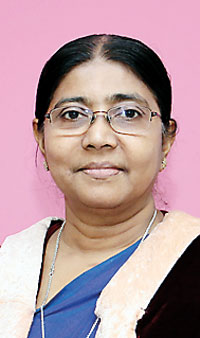Sri Lanka partnering with CONTESSA
View(s):
Sri Lanka partnering with CONTESSA for the transformation of Teacher Education with Contemporary Teaching Skills for South Asia to address the Agenda for Education 2030 towards SDG Goal 4 Quality Education for All by Prof. Manjula Vithanapathirana, National Coordinator, CONTESSA, Dean, Faculty of Education, University of Colombo
CONTESSA (Contemporary Teaching Skills for South Asia) sets up a partnership between European and South Asian Higher Education Institutions and educational organisations for the further development of teaching skills.
The international community adopted the 2030 Agenda for Sustainable Development Goals (SDGs). SDG4, as ‘Ensure inclusive and equitable quality education and promote lifelong learning opportunities for all’. The focus on teachers and teacher education is one of the three targets indicating the means of achieving quality education.
Teacher education is an educational intervention. The focus of teacher preparation was shifted from ‘training’ to ‘education’ to make a positive influence on the quality of curriculum transaction in classrooms. Teachers cannot be technicians who merely follow the instructional guides. The need to empower the teachers to meet the challenges of any teaching-learning context is a major persisting gap in teacher development.
The paradigm change in learning has created a need to strengthen teacher education to a greater extent. First, Learning is based on a strength model of student abilities, interest, and culture in contrast to the traditional deficiency model of the student. Second, Learning is an active process in contrast to a passive process of information transfer and reception. Third, Learning is a collaborative process rather than an individual/solitary process.
Teacher education is based on the theory that Teachers are made, not born in contrary to the assumption, Teachers are born, not made. Teacher Education is ever-evolving and dynamic. In order to prepare teachers who are competent to face the challenges of the dynamic society, Teacher Education has to keep abreast of recent developments and trends. Teacher education is a continuous process. Teacher education is a life-long experience that goes from their initial education to their retirement.
CONTESSA is competitively won as an Erasmus+ project from European Union and coordinated by the University of Graz in Austria. The Project Coordinator, Dr. Sandra Hummel, University Graz and the Scientific Project Director, Prof. Rudolf Egger, Head of the Institute of Educational Sciences, University of Graz are the leaders of the project. The main partners are Technical University of Dresden, Germany, University of Cambodia, Paññsstra University of Cambodia, University of Colombo and Open University of Sri Lanka.
Sri Lanka with its long history of a treasured educational system, is currently at a critical juncture of needing to steer a clear re-orientation of its human capital of educators to ensure an effective provision of their valued services that is in keeping with today’s global needs. It is less clear how teachers will acquire the skills of integrating technology without a systematic process of integration of technology to the teacher education programmes. Meaningful and authentic use of technology for quality teaching and meaningful learning is an essential component of a 21st century education. Teacher education programmes have been slow to transform and adopt programmes that are essential for new teachers to be equipped with skills for 21st century teaching.
This project aims at developing digital learning tools for innovative approaches to teacher education and to support the creation of flexible learning pathways in line with learners. In the provision of a variety of methods and materials for pedagogic professionalization it works out a three-step programme aiming at the professional development of teacher education:
n Teacher Educators: A comprehensive train-the-trainer programme for higher education will ensure teacher educators are well versed in contemporary educational theories, approaches and methods.
n Student Teachers: An online-based learning programme consisting of modules focusing on the acquisition of modern and applicable teaching skills will be introduced.
n In-Service Teachers: The online-modules will be adapted to fit the further education needs of in-service teachers.
The project will be built-on Blended Learning approaches which are new, high quality alternate pathways combining face-to-face interactions with online activities. Blended learning environments require educators to engage in new activities such as integrating online and face-to-face activities and redesigning course structure. In order to succeed with the blended teaching approach, educators need to provide goal-driven, constructive, and student-centered methods for designing classes and to create learning communities
The project was launched on the 19th July in Sri Lanka at the New Conference Hall of the Open University of Sri Lanka. Along with the University of Graz Project Coordinators, Sri Lankan counterparts, Professor Mohan de Silva, Chairmen, University Grants Commission, Professor S.A. Ariyadurai, Vice Chancellor, Open University Sri Lanka, Professor Chandrika N. Wijeratne, Vice Chancellor, University of Colombo, delegates of EU for Sri Lanka and Maldives participated to inaugurate the project. Associated partners and other stakeholders were from National Institute of Education, Ministry of Education, Ministry of Higher Education, National Education Commission, Departments of Education in University of Peradeniya and Jaffna, Teacher Colleges, Little Smiles Organisation.
The project aims to develop methodologies for South Asian teacher education that can be freely implemented in the courses by the participating institutions. The two teams from Faculties of Education of University of Colombo and Open University of Sri Lanka will actively participate towards achieving the goals of CONTESSA. Helping to improve the teaching skills of future and current educators through CONTESSA will make a significant contribution that will have lasting individual and societal impacts.


